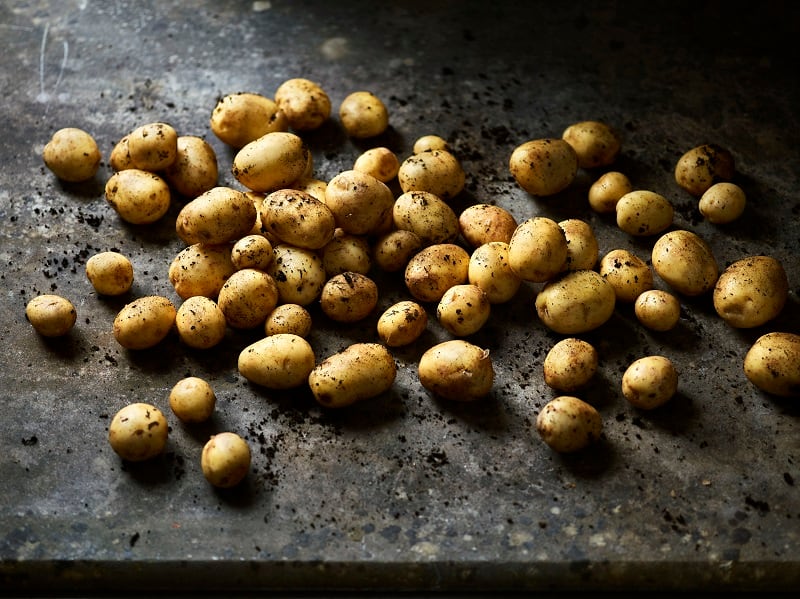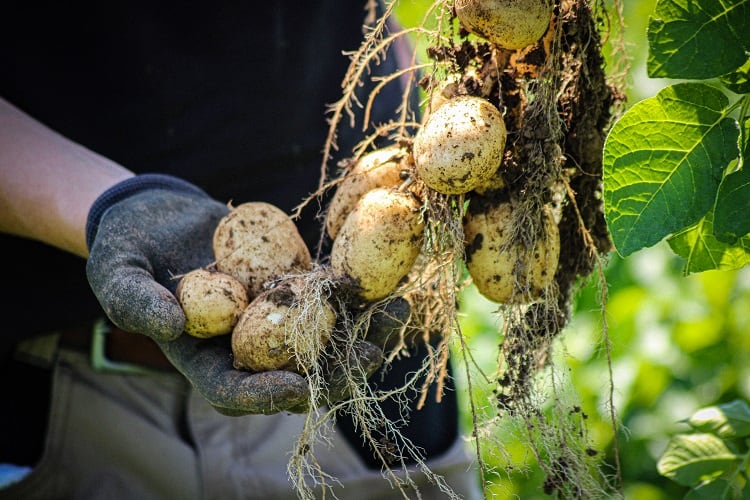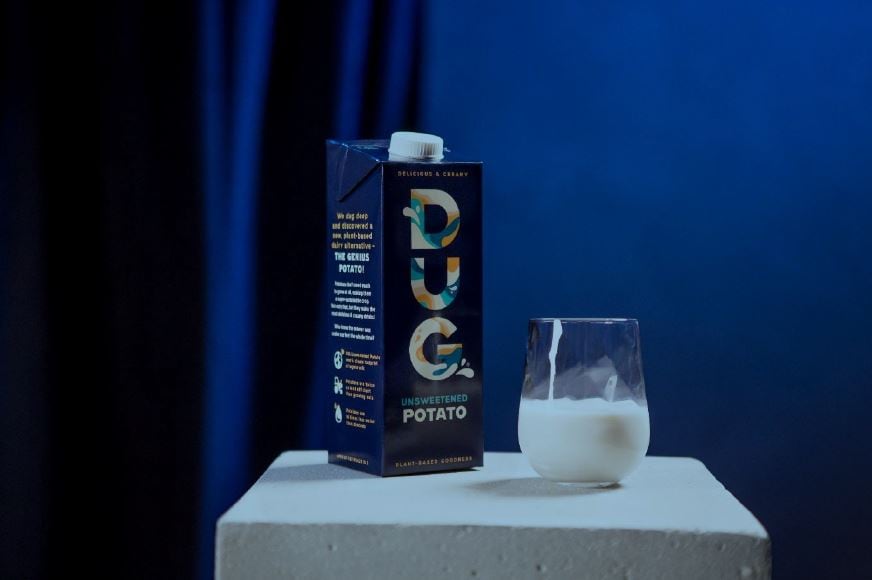Launched by the Organic Grower’s Alliance, the UK Robust Potato Pledge 2021 sees a host of retailers, with Waitrose the largest, agreeing from 2026 to only sell only ‘robust’ organic potatoes grown without copper-based fungicides, which are used to combat late blight Phytophthora. Blight is a disease that can quickly devastate entire potato crops. It is a serious problem for all potato growers, but it can be particularly difficult for organic farmers as they don’t use chemical inputs to fight off the disease.
The Organic Grower’s Alliance said the move will help the organic potato sector transition to 100% robust potato breeds over the next five years.
The move has been enabled by improving innovative breeding programmes that have had huge success at establishing varieties that are blight resistant, while still providing all the qualities that make potatoes a desirable choice for shoppers.
The pledge agreement builds on research from Organic-PLUS, an EU-project which aims to reduce the use of contentious inputs in organic and non-organic agriculture. Organisations such as Organic Grower’s Alliance, English Organic Forum, Organic Research Centre, and Biodynamic Association have also pledged their support.
Dutch success
The initiative also builds on the success in the Netherlands, which now boasts 22 ‘robust’ organic potato varieties on the market (up from only three in 2017) and where a number of retailers have committed to selling the blight resistant potatoes.
Phil Sumption from the Organic Growers Alliance said: “The potential benefits to growers of higher yields and less sprays, and to the environment, are massive. There are many great blight-resistant varieties out there with good culinary properties acceptable to consumers. It is fantastic to see the sector joining together to remove the resistance to resistance.”
Tony Little, a director at the Organic Growers Alliance, told FoodNavigator many consumers dislike the fact copper fungicides are used in organic farming.
“It's use doesn't really fit with organic principles so there's been a lot of work to eliminate copper fungicides form organic farming,” he told us.
Potatoes offering better dormancy qualities
The disease-resistant organic potatoes could potentially cut costs for producers by meaning less loss, help with climate change, and also possibly play a role in reducing food waste, he added.
"Potentially the advantage for growers is a reduction in cost as they no longer have to purchase fungicides, and potentially increased yields,” he said.
"Some of these varieties, as well as having blight resistance built into them, also have stronger dormancy which means you can store them for longer without having to put them into cold storage.in terms of tackling climate change and reducing the footprint of potatoes cold storage and the energy involved in cold storage is quite a significant contribution.”
Horticultural advisor Hugh Blogg – who works in the Soil Association’s farming team supporting farmers to adopt sustainable practices – said he hoped the pledge will help to unite supply chains in the organic potato sector. “Innovative breeding programmes have had huge success at establishing varieties that are blight resistant, while still providing all the qualities that make potatoes a delicious choice for shoppers. The backing of key retailers to stock these products is an exciting next step in the journey towards a more resilient and sustainable potato sector. We hope it will provide certified organic farmers with the confidence to grow less-known varieties, as well making it easier in future for other farmers to grow potatoes without using chemicals.”
Marija Rompani, Director of Ethics and Sustainability, at the John Lewis Partnership, which includes Waitrose, added: “With COP26 on the horizon we’re constantly looking for ways to improve our impact on nature and biodiversity. This pledge is a great opportunity for us to help reduce our environmental impact through innovation and we hope that through this leadership, and the leadership of our producers, the rest of the industry will follow suit.”




